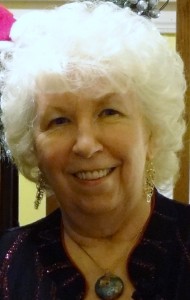How can people say — and seem to really believe — that war is not romanticized, sentimentalized, glorified? Remembrance Day has now become Remembrance Week. Some people start wearing poppies before the end of October. The airwaves are choked with story after story about the wars. I have no objection — of course — to stories and memories but the stories are told, so often, with such affectionate nostalgia.
Those of us who speak against wars are shushed, especially on November 11, or we’re told that it is these wars (even the one in Afghanistan!) that have guaranteed our freedom to speak openly.
As many others are, I am moved by the faces of the elderly veterans on November 11 and that’s a little sentimental. I really dislike the false equivalency that tosses all the wars in the same basket and I am not at all impressed by antics such as the recent one at an Ontario Legion, which puts a bit of tarnish on the veterans’ organization.
Let’s just say that, to me, the observance of Remembrance Day has been appropriated and turned into a tool of propaganda and I have come to resent its tone and what it has come to represent.
What follows is a column I wrote in November, 20 years ago. The war-in-preparation that I refer to in this column was the First Gulf War.
(This is a poppy watercolour painting project that Calgary artist Gail Bartel did with a grade 1 and 2 class.)
The love of war, the glory of war
November 9, 1990
We were talking last week about Remembrance Days of our pasts; my outstanding memories — with years all melded together — involve standing in Elm Park in Chatham, N.B. (when the elms were still there), freezing half to death. It always seemed to be an overcast day with a little snow on the ground, about an inch, the frozen November grass showing through just to add to the general bleakness.
There were veterans and the ladies’ auxiliary from the legion, high school cadets, the town’s band — it was pretty good too — and the usual dignitaries. We sang Abide With Me and the bugler played the Last Post and they solemnly read the names of all the people who hadn’t come back from the wars and laid the wreaths. The whole town seemed to turn out.
Pretty typical, I guess, just like any other small town in Canada on November 11.
Years later, my friend Margaret wrote a prize-winning newspaper column which was headlined “Time to stop glorifying war.” She felt that the further off the big wars were, the more people seem inclined to use words like “glorious victory” and “brave fighting men.” Her intention was not to dishonour the memory of anyone who had fought in the wars but no matter — she was censured from pulpits, strongly reproached by the local legion, and many people cancelled their subscriptions to the paper.
Margaret lives in Germany now so she isn’t following the current call to war as closely as we’re able to — particularly thanks to all the Canadian journalists (including local ones from our two television news shows) who are sending back reports from their vantage points aboard the Canadian navy ships.
One of the favourite slogans of the women’s peace movement is “Take the toys from the boys.” Never has it seemed more appropriate as we learn in such enthusiastic terms how well the guns are working during the daily tests, as we read the poetic language the journalists are using to describe the “aloof, sleek” CF-18 jet fighters and the pure affection with which they write about the aging Sea King helicopters — “a noisy, vibrating bird,” one wrote.
Well, propaganda is not a new device, for sure, and it’s certainly effective. Even now, little boys are running about making helicopter noises or dropping imaginary bombs on the head of the latest Evil Incarnate, Saddam Hussein, not unlike many earlier generations of boys who hoped against hope that the war of the moment would last long enough for them to get a crack at it.
The love of war — the romance of war — the glory of war have all been expounded for a long time.
Men grow tired of sleep, love, singing and dancing sooner than of war. (Homer: Iliad XIII).
Pride, pomp, and circumstance of glorious war! (Shakespeare: Othello I.i.).
War, that mad game the world so loves to play. (Jonathan Swift: Ode to Sir William Temple).
But this year, 1990, as we accept the possibility of war in the Middle East, also marks the 30th anniversary of the founding of the pacifist organization, Voice of Women for Peace. It might be a good time to remember some of the words from its constitution, adopted in 1961.
To unite women in concern for the future of the world; To help promote the mutual respect and co-operation among nations necessary for peaceful negotiations between world powers; To protest against war or the threat of war as the decisive method of exercising power; To appeal to all national leaders to co-operate in developing methods of negotiations; To appeal to all national leaders to co-operate in the alleviation of the causes of war by common action for the economic and social betterment of all people; To provide a means for women to exercise responsibility for the family of humankind.
May their voices be heard loudly and strongly this Remembrance Day. Peace, dear sisters.


